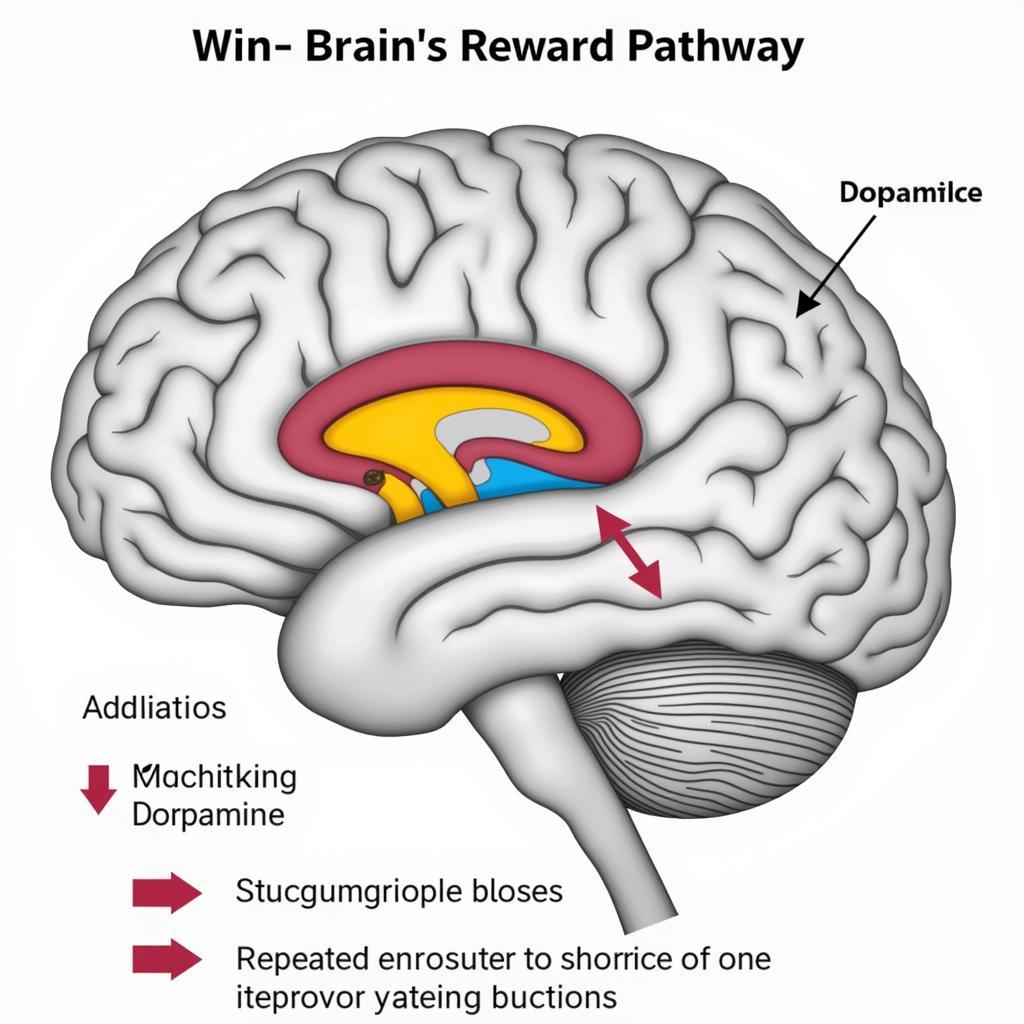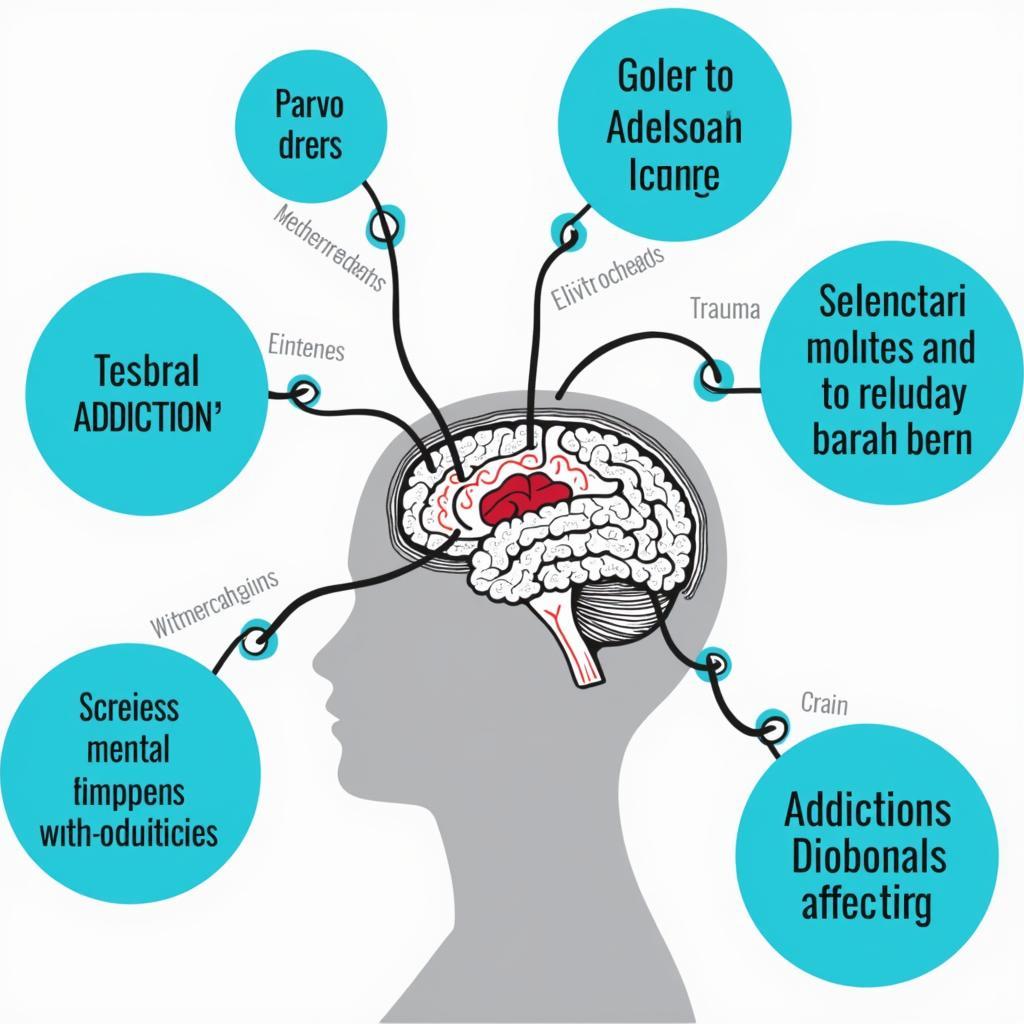Addiction research and theory seeks to explain the complex interplay of biological, psychological, and social factors that contribute to the development and maintenance of addictive behaviors. This understanding is crucial for developing effective prevention and treatment strategies. From substance abuse to behavioral addictions like gambling and internet addiction, research explores the underlying mechanisms that drive these compulsions.
The Biological Basis of Addiction
Addiction research highlights the significant role of the brain’s reward system in the addiction process. Neurotransmitters like dopamine play a crucial role in reinforcing pleasurable experiences, leading to the formation of strong associations between the addictive behavior and the reward. Over time, the brain adapts to the presence of the addictive substance or behavior, leading to tolerance and withdrawal symptoms. Genetic predisposition also contributes to an individual’s vulnerability to addiction. Some individuals may have a genetic makeup that makes them more susceptible to the rewarding effects of certain substances or behaviors.
 Brain Reward System and Addiction
Brain Reward System and Addiction
Psychological Theories of Addiction
Psychological theories offer valuable insights into the cognitive and emotional processes that contribute to addiction. Cognitive Behavioral Therapy (CBT) emphasizes the role of learned associations and maladaptive thought patterns in maintaining addictive behaviors. For example, individuals may develop strong cravings or urges when exposed to cues associated with the addictive behavior. Other psychological theories focus on the role of stress, trauma, and other underlying mental health conditions in increasing the risk of addiction.
The Role of Learning and Conditioning
Classical and operant conditioning principles play a significant role in the development and maintenance of addiction. Classical conditioning involves the pairing of a neutral stimulus with a rewarding stimulus, leading to the neutral stimulus eliciting a conditioned response. In the context of addiction, cues associated with the addictive behavior can trigger cravings and urges. Operant conditioning focuses on the consequences of behavior. The rewarding effects of the addictive behavior reinforce the behavior, making it more likely to occur in the future.
 Psychological Factors in Addiction
Psychological Factors in Addiction
Social and Environmental Influences
Social and environmental factors also play a crucial role in the development and trajectory of addiction. Factors such as peer pressure, family history of addiction, and exposure to addictive substances or behaviors can significantly increase an individual’s risk. Socioeconomic factors, such as poverty and lack of access to education and healthcare, can also contribute to the vulnerability to addiction. Cultural norms and beliefs surrounding substance use and other addictive behaviors can also influence individual choices and behaviors.
The Impact of Social Networks
Social networks and peer groups can exert a powerful influence on an individual’s likelihood of engaging in addictive behaviors. Peer pressure and the desire to fit in can lead individuals to experiment with substances or engage in risky behaviors. Additionally, social networks can provide access to addictive substances or facilitate engagement in addictive behaviors, such as gambling or online gaming.
 Social and Environmental Influences on Addiction
Social and Environmental Influences on Addiction
Addiction Treatment and Recovery
Addiction research and theory inform the development of evidence-based treatment approaches. These approaches often involve a combination of medication, therapy, and support groups. Medications can help manage withdrawal symptoms and reduce cravings. Therapy helps individuals address the underlying psychological factors contributing to their addiction and develop healthier coping mechanisms. Support groups provide a sense of community and connection, which can be crucial for long-term recovery.
Conclusion
Addiction research and theory provide a comprehensive framework for understanding the complex interplay of biological, psychological, and social factors that drive addictive behaviors. This knowledge is essential for developing effective prevention and treatment strategies. By addressing the underlying causes of addiction and providing individuals with the necessary support and resources, we can help them break free from the cycle of addiction and achieve lasting recovery.
FAQ
- What is the difference between physical dependence and addiction?
- What are the most effective treatments for addiction?
- How can I support a loved one struggling with addiction?
- What are the long-term effects of addiction?
- What are some common misconceptions about addiction?
- What are some resources available for people seeking help for addiction?
- How can I prevent addiction in my family?
More Information
For further insights, explore our articles on specific addiction types, treatment options, and recovery stories. You can also find information on local support groups and resources.
Need Help?
If you or someone you know is struggling with addiction, please reach out. Contact us at Phone Number: 0904826292, Email: [email protected], or visit our office at No. 31, Alley 142/7, P. Phú Viên, Bồ Đề, Long Biên, Hà Nội, Việt Nam. Our 24/7 customer support team is ready to assist you.